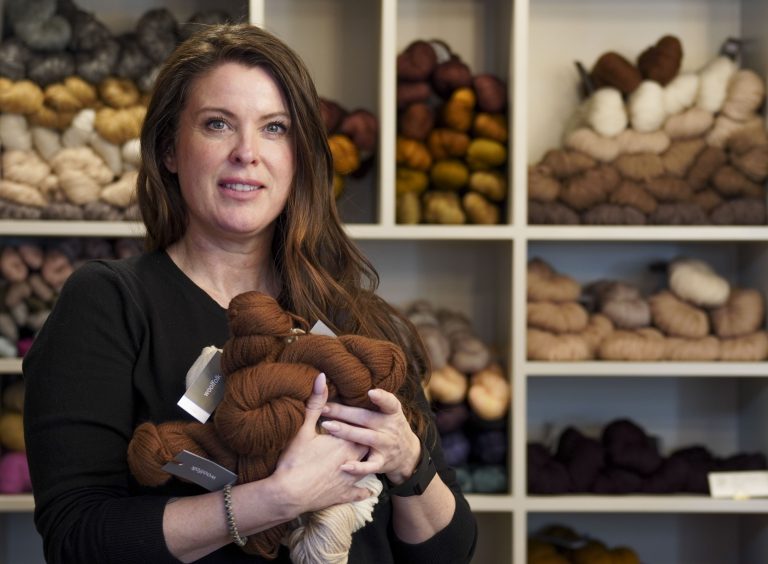Michèle Bowland learned to knit under the patient guidance of her nana Maureen. As a six-year-old, petting yarn, choosing colors and creating wearables with her grandma was her favorite way to pass time while her mother was in university.
Decades later, after a 25-year career in oil and gas, she found herself confined to her home in Calgary during the COVID pandemic. The anxiety and isolation from working remotely made her re-evaluate her path.
“We’re thrashing our way through traffic to get to school, to get to work, to get the best grade and the highest pay, and all these are human constructs,” she said. “But our brains are in a spiritual place, and [while] being creative, you’re accessing that spiritual side of yourself.”
Heeding her parents’ advice, Bowland gave her creative side a chance. She left her corporate career and opened a yarn boutique in 2022.
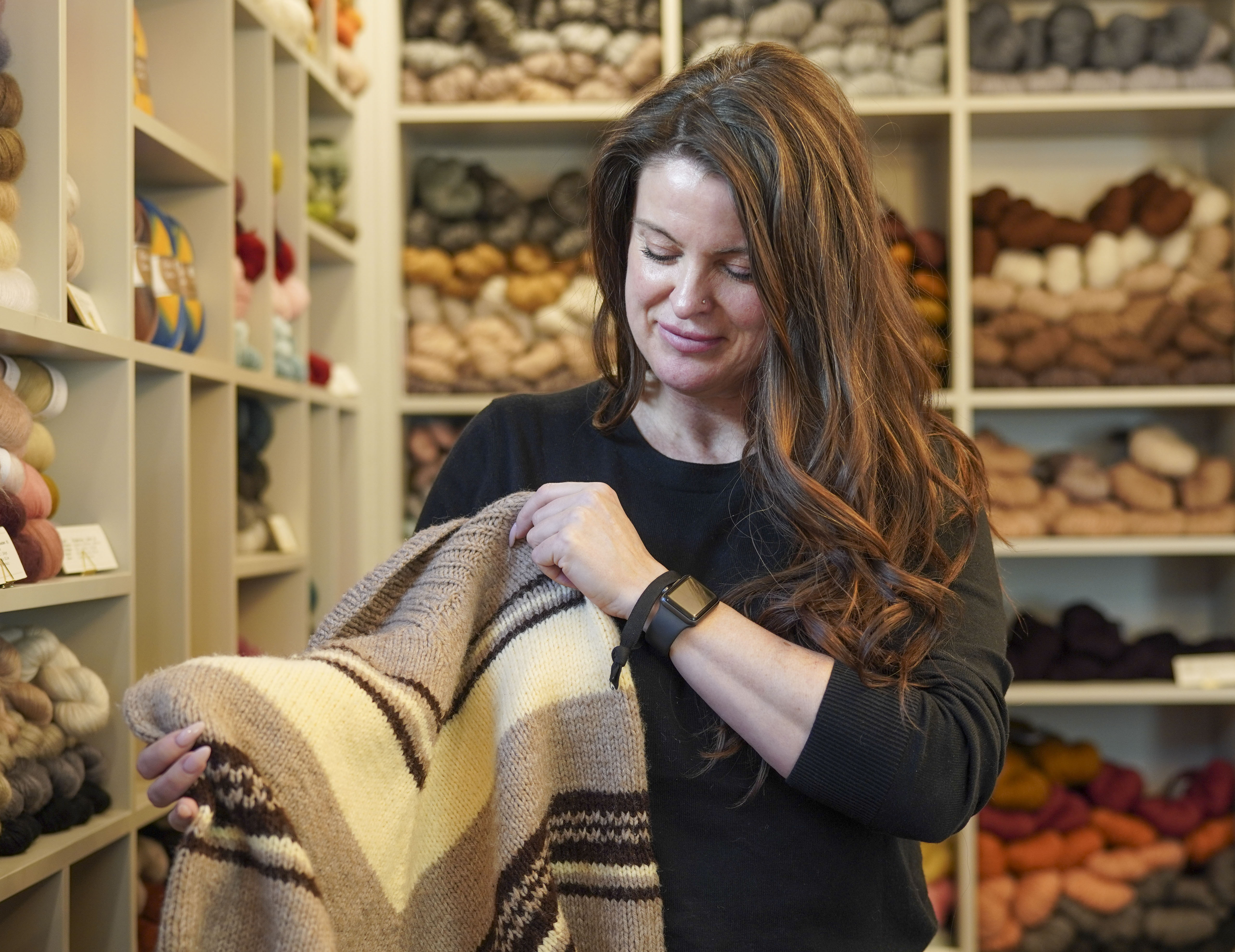
She says she is proud of her decision and the community she is now a part of.
Success
You are now signed up for our newsletter
Success
Check your email to complete sign up
“I get all the generations. There are a lot of younger people learning to knit and crochet,” she said. “We all have that in common. We’re all into making things with our hands.”
Knitting generations together
Considered one of the oldest crafts, knitting has traditionally been passed down by women.
“Women are emotion, love, and all the care that goes into raising a family,” said Bowland. “I don’t have children of my own, but I still can share what my nana passed down to me. I’m still passing it around.”
For Bowland, women – mothers and grandmas – are to be admired not only for their selfless homemaking, but also for the strength and values they pass down to generations.
“She would be so thrilled to know that just spending time with me when I was little has turned into my whole life,” she said. “I always remember my nana’s house. Just the love and attention she would give me.”
Celeste Jordan, a Calgary public school teacher with a penchant for knitting, also inherited the tradition from her grandmother.
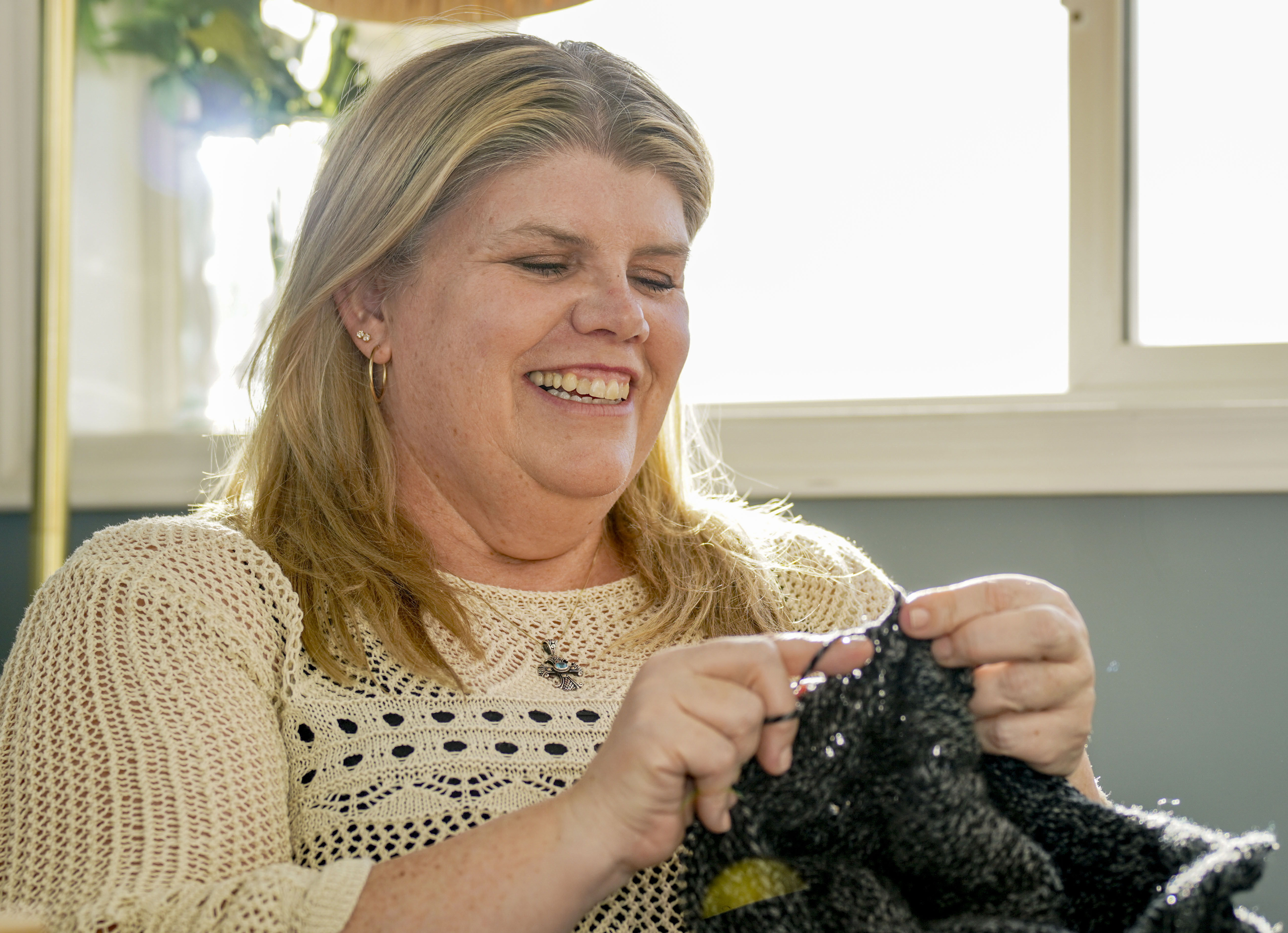
“I think it helps connect generations to past generations,” she said. “It should make you feel proud that you’re doing something your ancestors did out of necessity, which could become necessity again someday.”
Crafting a happier life
Bowland has no family in Calgary and says knitting helped her deal with loneliness during the pandemic.
“[It] gave me something that I really dove into and had a focus on, and it gave me a purpose outside of just logging in to work every day,” she said.
In addition to boosting creativity, knitting can boost resilience and patience. Bowland says devoting attention and care to something that can take days or even months is more fulfilling than the instant gratification people get from social media.
“When you’re working on things, patience pushes you to the next level,” she said. “There is something gratifying in starting again, and recognizing that frustration is part of the learning experience makes you better at your craft.
“Imagine if every artist gave up every time they made a mistake. We wouldn’t have any art to look at!”
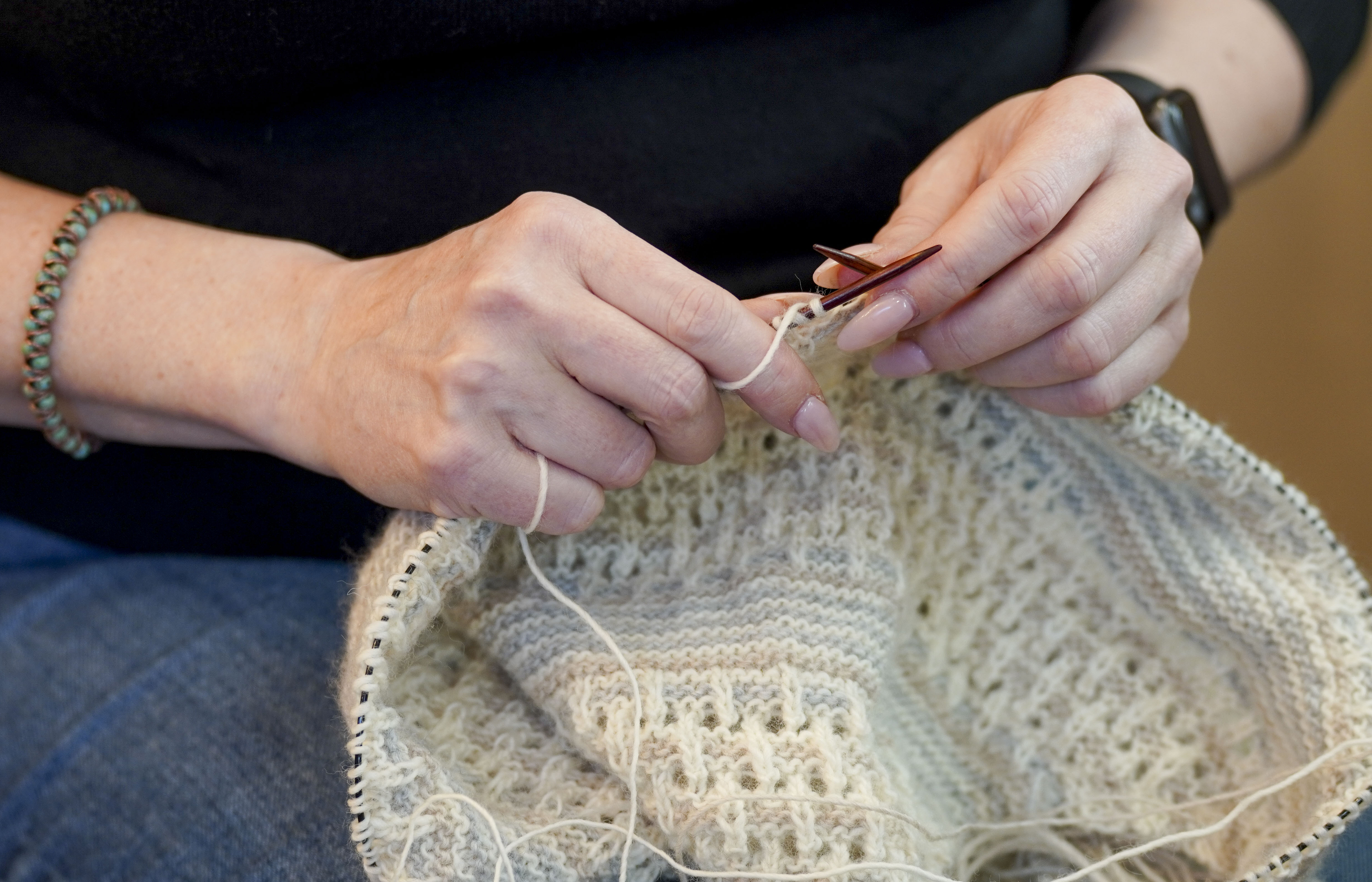
Bowland added that knitting involves sensory experiences that help quiet the mind.
“There’s a really tactile and tangible experience with anything with fiber because you’re touching it,” she said. “There’s an audible quality because if you use metal needles, there’s a different sound to your rhythm than if you’re using wooden needles.”
For Jordan, knitting helps her stay calm when she has anxiety or a problem she can’t solve. She says she knitted more than 50 scarves during her early years as a single mother.
“There is a value in the way that your brain functions when you’re doing something yourself,” she said. “I don’t think people know that anymore.”
The joy of knitting
Knitting was born out of the human need for clothing. Over time, it became a feminine craft intended to create functional items for the home.
“Women are traditionally more nurturing. We want to make our home feel personal and important,” said Jordan. “There’s something nice about coming into a home that has homemade things.”
She thinks that knitting, in particular, has the power to turn a home into a welcoming, safe space.
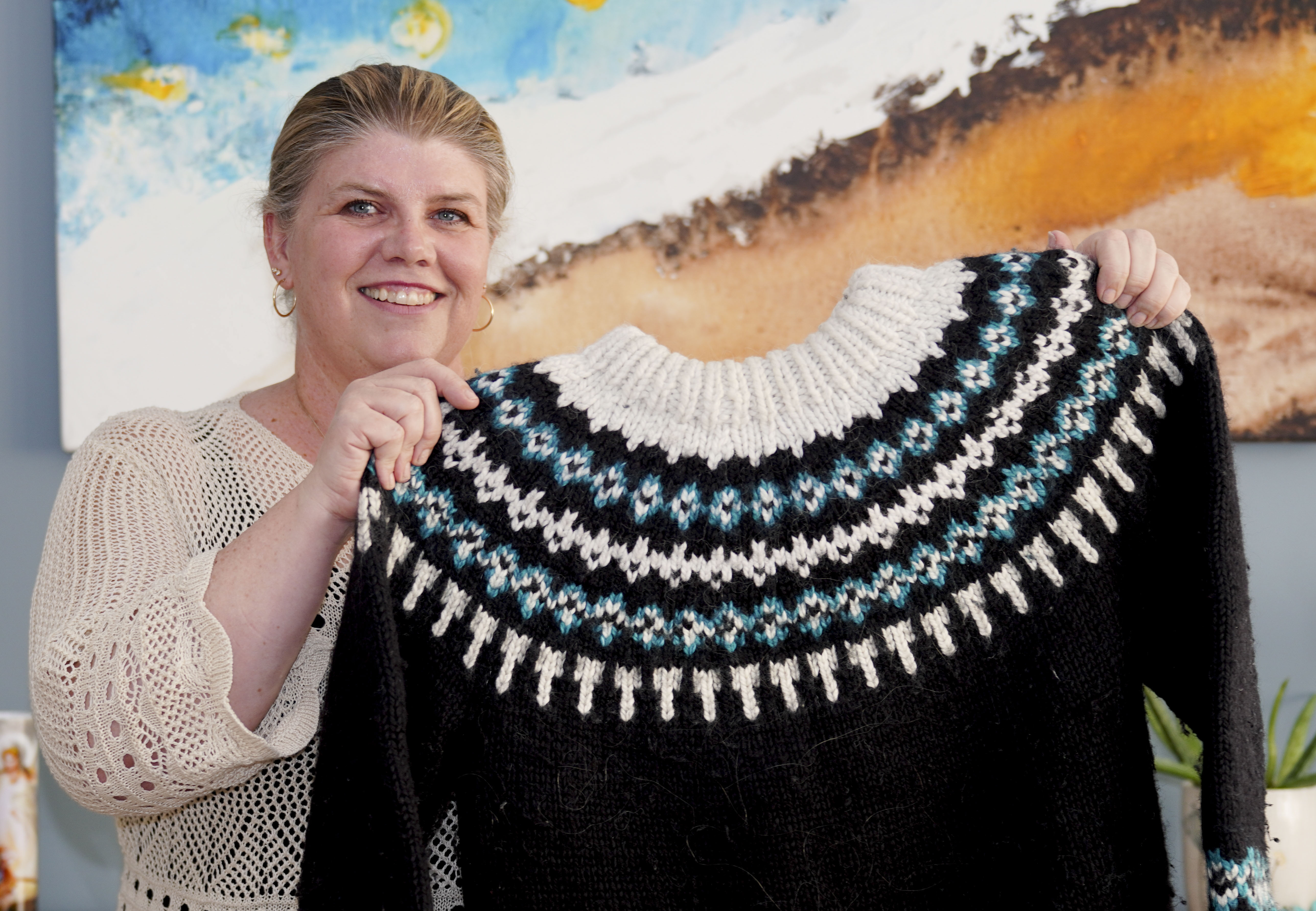
“Knitting automatically makes the home feel cozy and warm because you’re leaving a part of yourself in it,” she said. “When you are able to give a part of yourself away, it means a lot more.”
In addition to being an expression of care and creativity, knitting has a spiritual connection to heaven, says Jordan.
“I believe that God created humanity and that we are made in His image,” she said. “Then, we are meant to create… When you make something over time, you know every last stitch that’s in there, just like God does every last hair on your head.”
Priceless craftsmanship
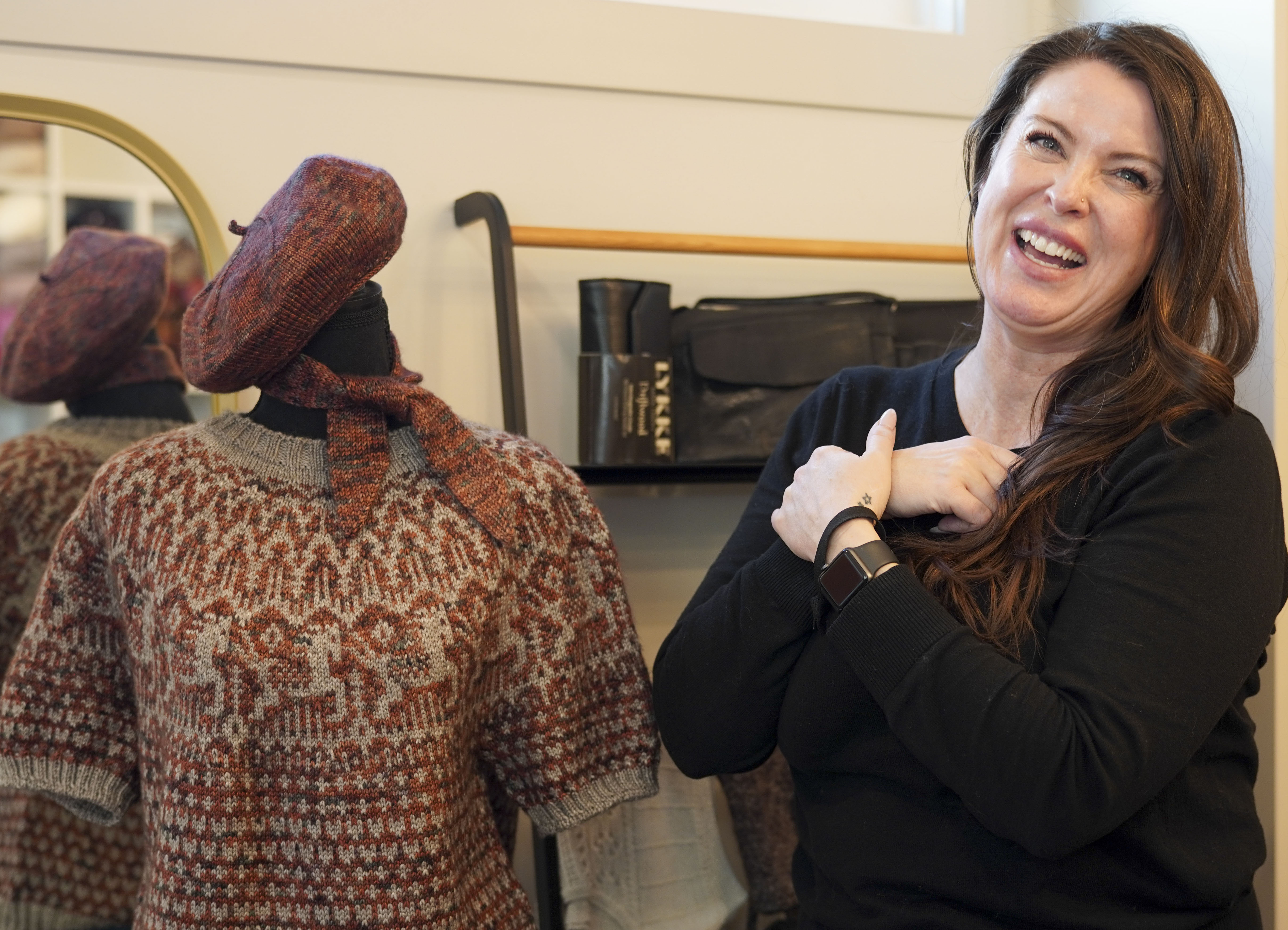
Bowland thinks that younger generations are not aware of the effort behind handmade goods.
“The mass production of everything has created a culture where we don’t understand the value of anything,” she said.
Near the entrance of her small boutique, Bowland displays a sweater she knitted this past Christmas break. It took her almost 10 hours to complete and is made of 60% yak, 20% silk and 20% merino wool.
However, it is not for sale.
The retail price of the yarn used in this project, including the hat and scarf, is about $300 CAD. If she charged minimum wage for her work, the three pieces would be valued at no less than $450 CAD. Needless to say, Bowland’s level of experience is worth well above base salary.
“[Its] value is outside of the range of what most people are expecting or wanting to pay for,” she said. “We’re looking to spend money all over the place, but when it comes to value, we don’t want to spend money.”
She believes this is partly due to the decline of arts education in schools.
“A lot of us don’t get exposure to the creative things in life because parents are busy,” she said. “The more we cut [creativity] out, the more we don’t know how to do anything. We just [end up] paying someone to do it for us or shipping it through Amazon.”
Bowland says parents should let their children explore and be creative, as her grandmother did with her.
“Those traditional creative outlets are very important,” she said. “There is huge value in them.”



